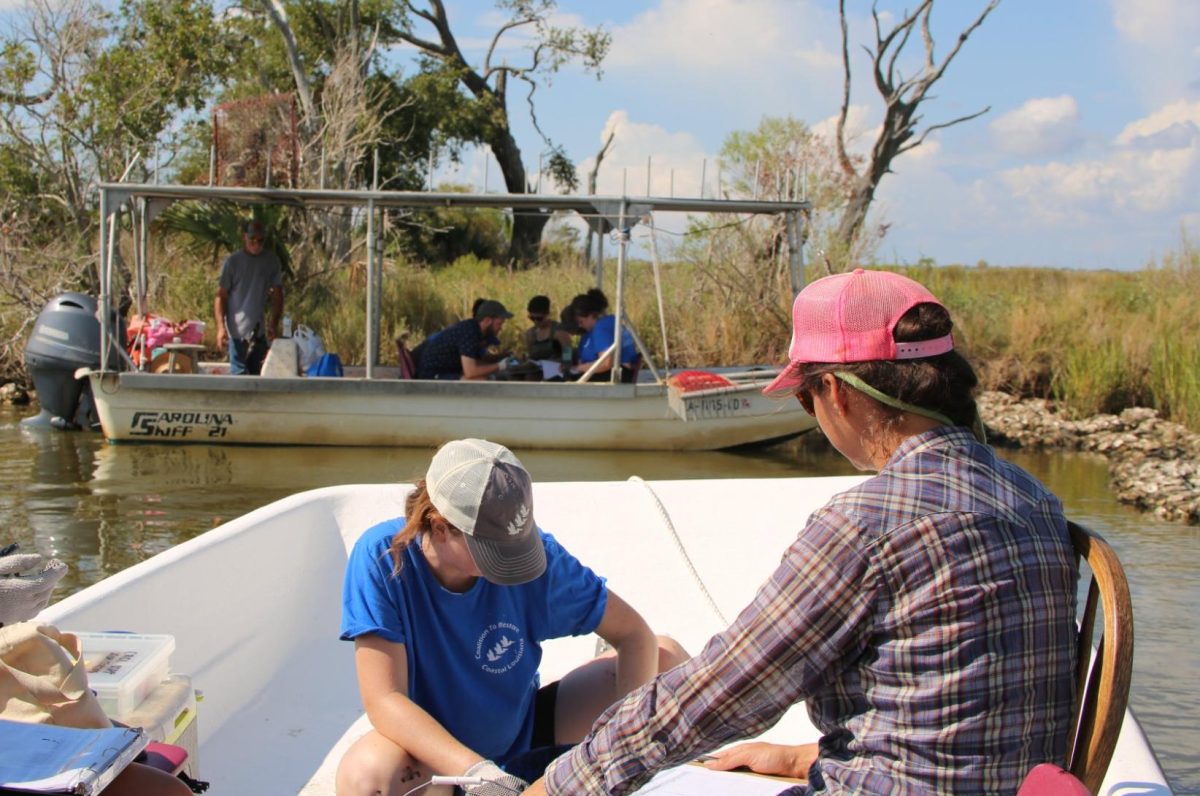*This article has been edited since the date of publication.
It’s no secret that Louisiana has a shoreline erosion issue, but not many people understand the negative effects it is leaving on coastal Native tribes.
A continued loss of wetlands has the potential to negatively impact the state’s economy, environmental integrity and natural resources.
Although these consequences could potentially happen in the future, Native Americans are losing their lands now.
And with each bit of tribal land that is eroded, Louisiana is also losing culture and heritage.
Louisiana should focus more effort on preserving tribal lands and history. The state needs to listen to Native communities and work with them to find a solution.
Once this land and its history are gone, we can’t get it back.
The United States Geological Survey estimates that Louisiana has lost approximately 1,900 square miles of its coast since 1932.
Coastal erosion has been an issue for Louisiana for decades, but in recent years, it has gotten worse.
In 2016, the people of Isle de Jean Charles became America’s first official climate refugees. The island is inhabited by the United Houma Nation and the Biloxi-Chitimacha-Choctaw tribe, and they are now part of a $48 million relocation project funded by the U.S. government.
The sinking land has given many of them no choice but to leave.
While the government gave them enough money to move to higher ground, there have been many concerns since relocating.
Some members have decided to stay on the island. Among them was Albert Naquin, chief of the Isle de Jean Charles Chief band of Biloxi-Chitimacha-Choctaw.
According to National Geographic, Naquin was a key negotiator for the grant the tribe received. He said he was under the impression that members of the tribe who moved away as early as the 1960s could come to the new relocation area.
Louisiana’s Office of Community Development handled the case and denied Naquin’s remarks, saying that the goal was only to give the island’s residents refuge.
“The plan was to reunite the tribe, and now it’s going to be destroyed,” Naquin said in a LA Times article. “Instead of fixing it, I broke it.”
This tribe might have had to be relocated but its goal was to protect its people and community. Decisions made regarding relocation should be made by the tribe, not the state.
Of course, some negotiations have to be done. But it is clear that at least some Biloxi-Chitimacha-Choctaw members felt as though they had not been heard.
According to the National Park Service, Louisiana only has four federally recognized Native American tribes: the Jena Band of Choctaw Indians, the Tunica-Biloxi Tribe of Louisiana, the Coushatta Tribe of Louisiana and the Chitimacha Tribe of Louisiana.
Louisiana also has 11 state-recognized tribes.
Indigenous communities have deep roots of cultural, historical and even spiritual importance, which are all connected throughout their lands.
When you take their land, you are taking away part of their way of life.
This erosion of tribal land threatens the areas where traditions and ceremonies are held, disrupting the communal connection and practice tied to their ancestral lands.
According to WWNO, the Pointe-au-Chien tribe has started a project using 40-pound bags of recycled oyster shells to build a 300-foot reef around their historic mounds to stop them from slipping into the Gulf.
These mounds are significant because ancestors of the tribe are buried there. They hold much value to the tribe.
An environmental nonprofit, Coalition to Restore Coastal Louisiana, worked with the tribe and eventually plans to help them finish the reef.
“This is a start. It’s not much, but it’s a start. If we could get more help, we could do more and hopefully try and save [the land] instead of just letting it wash away,” the tribe’s second chairman Donald Dardar said.
Although the state has already made some vital steps in coastal restoration, there should be more focus on preserving the culture, not just the land.
We need to recognize the importance of preserving the Native culture and lands of Louisiana.
The state needs to listen to these Native communities, understand their needs and act with the tribe’s best interests in mind.
The only way to save Native American Louisiana culture and the erosion of these sacred lands is to join in a collaborative effort.
But relocating tribes and calling it a day isn’t helping keep the generational marks on their home from disappearing. There must be more support put into conservation efforts for Louisiana’s tribes.
Raising awareness about the cultural significance of these lands can give people a better understanding of why preserving the environment and heritage of Louisiana’s indigenous peoples is so important. Spreading concerns and information has the potential to garner more attention.
While we can’t get back lands we have already lost, it is essential that Louisiana puts its best foot forward in working to preserve and retain lands that are not yet underwater.
Louisiana is rich with culture and history, and we can’t afford to lose any more.





